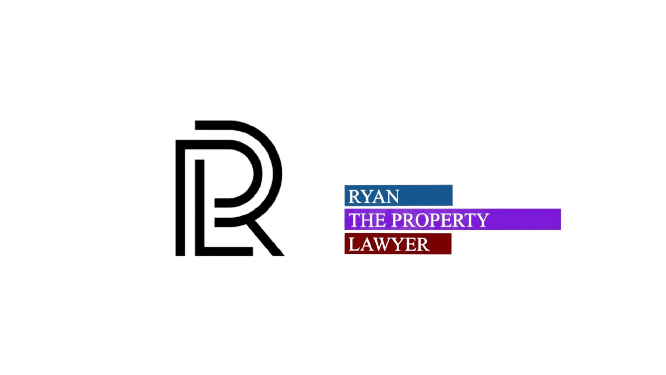Why Real Estate Disclosure Standards Are Important
Table Of Contents:
- Why Real Estate Disclosure Standards Are Important
- Who is accountable for ensuring compliance with real estate disclosure requirements?
- How to Ensure Real Estate Disclosure Obligations Are Met
- What are the disclosure requirements for real estate?
- Why Are Real Estate Disclosure Standards Important?
- What information must be disclosed?
- What is the Consequence of Withholding Information?
- Discussion
Complex Real estate disclosure requirements & transactions require several legal concerns. The obligation for real estate disclosures is one of the most essential of them. Disclosure regulations for real estate are intended to safeguard both the buyer and seller in a real estate transaction. These criteria guarantee that all parties are aware of any concerns that may impact the property’s value or condition and may make educated judgments.
What Are Real Estate Disclosure Requirements?
Real estate disclosure requirements are legislative rules mandating the disclosure of certain property information to prospective buyers. These standards vary by state and province but often include details regarding the property’s condition, history, and possible risks. The following are examples of information that may need to be disclosed:
- Previous floods or water damage
- Mold and other ecological dangers
- Foundation issues
- Roof, plumbing, or electrical system malfunctions
- Litigation or liens pending against the property.
- Land use or zoning constraints
In many instances, real estate disclosure laws oblige the seller to present the buyer with a written disclosure statement. This statement normally describes any known problems or difficulties with the property, as well as any repairs or enhancements.
Why Are Real Estate Disclosure Standards Important?
Real estate disclosure regulations are crucial for various reasons. In the first place, they safeguard purchasers from unintentionally acquiring a home with significant faults or risks. By requiring sellers to disclose any known concerns with the property, purchasers are able to make an educated decision regarding the purchase.
In addition to protecting purchasers, disclosure regulations for real estate also safeguard sellers. By discussing any known faults with the property up front, sellers reduce the likelihood of being sued for neglecting to disclose facts in the future. This can aid in avoiding costly legal fights and facilitate the transaction’s smooth progression.
Who is accountable for ensuring compliance with real estate disclosure requirements?
Often, the seller is responsible for complying with real estate disclosure obligations. This implies that the seller is required to report any known problems with the property in a timely way. In some instances, the seller may be compelled to furnish the buyer with a written disclosure statement that details any known difficulties or faults with the property.
But, it is vital to note that in some instances, the buyer may also be responsible for inspecting the property and asking about any problems. For instance, if the buyer discovers a fracture in the property’s foundation, they may be required to inquire with the seller and conduct further investigation to identify the extent of the problem.
What Happens If Disclosure Obligations for Real Estate Are Not Met?
If real estate disclosure obligations are not completed, both the buyer and the seller may face legal issues. If the seller fails to disclose a known concern with the property, the buyer may be entitled to sue for damages. This can include the cost of repairs, the cost of any legal expenses required, and even the cost of any lost value of the property owing to the issue.
On the other side, if the buyer fails to explore the property or to ask inquiries about any possible difficulties, they may be held accountable for any issues that develop later on. This is why it is so vital for both buyers and sellers to take real estate disclosure obligations seriously, and to ensure that all relevant information is reported in a timely and correct way.
How to Ensure Real Estate Disclosure Obligations Are Met
The best approach to guarantee that real estate disclosure obligations are completed is to consult with a skilled and experienced real estate lawyer. A real estate lawyer can help both buyers and sellers negotiate the complicated legal landscape of Real estate transactions may be difficult, and one of the most crucial components of purchasing or selling a property is ensuring that all pertinent information is provided to the opposing side. Important information that is not disclosed might result in legal troubles and financial loss, which is why real estate disclosure regulations exist.
In this article, we will discuss real estate disclosure regulations, their significance, and what buyers and sellers need to know.
What are the disclosure requirements for real estate?
Real estate disclosure requirements are legal responsibilities that compel a seller to reveal specific information to a buyer about a property they are selling. These standards vary according on the jurisdiction, but they often encompass important information about the property, such as its condition, history, and any concerns that might impact its value or desirability.
Why Are Real Estate Disclosure Standards Important?
Disclosure rules for real estate are essential for a variety of reasons. First, they aid in ensuring that prospective purchasers are well-informed on the property in question. This information is essential for a buyer to make an informed decision on whether to proceed with the purchase.
Second, real estate disclosure regulations safeguard sellers from legal problems and monetary loss. By giving complete disclosure of all pertinent facts regarding the property, the seller can avoid future legal action and any resultant financial loss.
Lastly, real estate disclosure regulations contribute to the preservation of the real estate market’s integrity by ensuring that all participants are treated fairly and transactions are performed openly and transparently.
What information must be disclosed?
- The particular information that must be released varies by jurisdiction, but often includes the following:
- This contains details regarding the property’s condition, age, and maintenance and remodeling history.
- Environmental risks: This information must be provided if the property is located in an area recognized for environmental dangers, such as lead paint or radon gas.
- Disclosure is required of any legal difficulties relating to the property, such as liens, litigation, or zoning violations. Additional factors that might impair the property’s value or attractiveness must also be stated, such as noise pollution or closeness to a major road.
What is the Consequence of Withholding Information?
Whenever a seller fails to disclose important property information, a buyer may have legal remedies. The buyer may be entitled to sue the seller for damages or to revoke the deal, depending on the jurisdiction. In some instances, the vendor may also be subject to fines and other legal consequences.
What should purchasers do?
As a buyer, you must be aware of the disclosure laws for real estate in your jurisdiction. Inquire with your real estate agent or lawyer about what information must be shared, and ensure that you obtain all disclosures prior to making an offer.
You may have legal recourse if you learn essential information was not provided after the deal has closed. Consult a lawyer to determine your available choices.
What should sellers do?
As a seller, you must be completely honest about the property you are selling. Disclosing all significant facts and other pertinent information, even if it may dissuade a buyer from submitting an offer, is required.
Dealing with a real estate agent or lawyer can assist guarantee that you comply with all of your jurisdiction’s disclosure laws. Also, it is essential to maintain any sale-related paperwork, since they may be required in the future if legal concerns emerge.
Discussion
Disclosure rules for real estate are a crucial component of every real estate transaction. They guarantee that purchasers are well-informed.
In conclusion, disclosure regulations for real estate are crucial to the purchasing and selling of a property. It guarantees that both the buyer and seller have comprehensive and accurate information on the property’s condition and any possible problems. As a buyer or seller, you must be aware of these standards to guarantee a smooth and honest transaction. Dealing with a knowledgeable real estate agent and a lawyer can assist in navigating these regulations and guarantee compliance. Full transparency can ultimately result in a successful and satisfying real estate transaction for all parties.
Author Profile

Latest Blog
 Uncategorised22 December 2023What Constitutes a Legal Partnership in Ontario?
Uncategorised22 December 2023What Constitutes a Legal Partnership in Ontario? Uncategorised22 December 2023Characteristics of a Corporation in Ontario
Uncategorised22 December 2023Characteristics of a Corporation in Ontario Uncategorised22 December 2023Intentions Matter When Co-Owning Property
Uncategorised22 December 2023Intentions Matter When Co-Owning Property Uncategorised22 December 2023Consequences of Operating an Ontario Partnership
Uncategorised22 December 2023Consequences of Operating an Ontario Partnership




